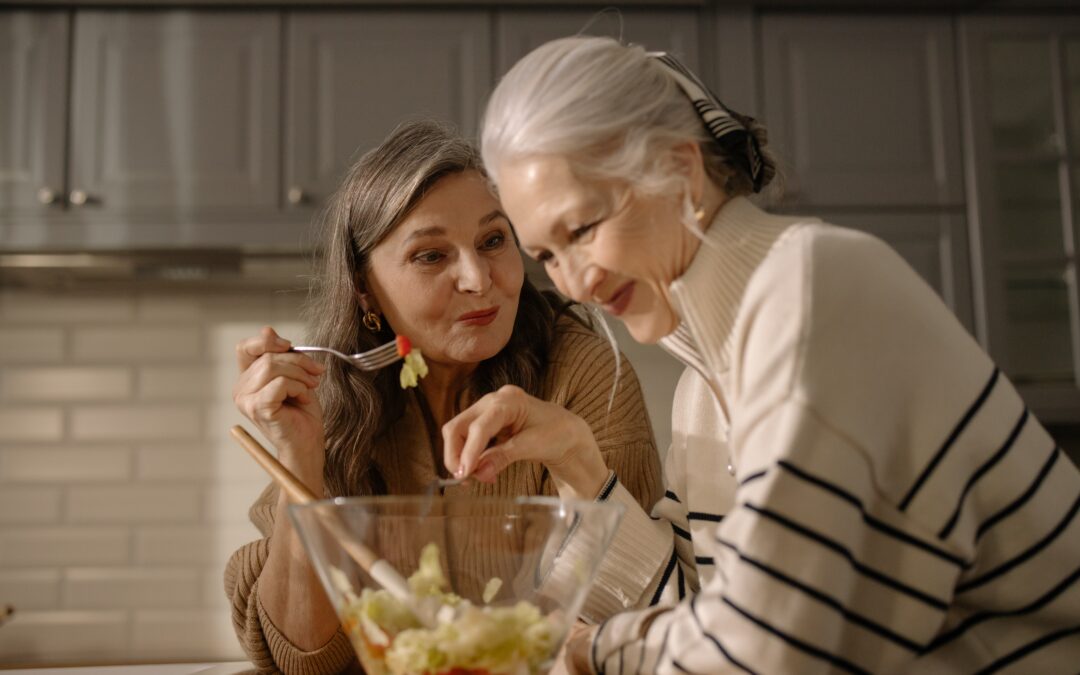As we age, our caloric needs tend to decrease, however, we still need more vitamins, protein, and other nutrients. In America, there is a prevailing lack of awareness of seniors’ dietary needs and the crucial role nutrition plays in longevity and overall well-being.

Signs of Malnutrition in the Elderly
Older adults are particularly exposed to malnutrition due to their different nutritional needs, the medication they take, and higher rates of chronic medical conditions. In addition to this, changes such as lack of appetite, depression could contribute to malnutrition.
While we previously emphasized on proper nutrition tips for seniors at home, it is important to look into the signs of malnutrition in the elderly.

Irritability or Anger
Irritability or Anger
Is your loved one uncharacteristically irritable or angry? Do they get angry at things that would previously not annoy them? If so, you need to check what changes they have made in their diet. Irritability due to malnutrition could be due to depriving the body of important nutrients that alter their overall mood.
Frequent Fatigue
Fatigue can result from simple activities that would not make seniors feel tired. They could get tired from sitting down or sleeping through the night. Malnutrition makes the body tired and affects optimal functionality. Some seniors could also be avoiding certain food groups and this could result in fatigue.
Loss of Appetite
A lack of interest in meals and appetite could mean that seniors are suffering from malnutrition. They will skip meals or even go for days without eating. In addition to this, a lack of appetite could result in starvation which if not addressed could lead to severe health issues or even death.
Hair Loss
Failing to nourish the body results in hair loss as the body is unable to generate the hormones required for hair growth. Hair falling out easily just by a simple touch should be a cause of alarm for malnutrition in seniors.
Long Recovery Time from Illness or Surgery
Healing requires proper nutrition and a well-balanced diet. For the medication being used to treat illness to work effectively, proper nutrition is required. If they are taking longer than usual to recover, it would be better to work with a nutritionist to adjust their diet for a faster and safer recovery process.

Depression or Anxiety
Depression or Anxiety
Life after retirement or employment for seniors can be challenging and this can lead to malnutrition due to loss of income, loneliness, or lifestyle changes. Eventually, this results in depression or anxiety. Feeding America reports that in 2019, 5.2 million seniors (7.1% or 1 in 14) were food insecure. Food insecurity can affect the quality of life that most seniors live and this could cause depression or anxiety. It is therefore important to help seniors adjust to changes in life after employment.
Always Feeling Cold
Food regulates the body temperature and keeps it at an optimum level to allow for cell functionality. If an older adult is always feeling cold, it could be that they are not following proper nutrition protocols. In addition to feeling cold, they could also feel lethargic and sleepy often.
Malnutrition in the elderly could result in weakened immune systems, decreased muscle mass, diminished cognitive function, and general weakness.
If you need assistance with meal preparation and planning, engaging a home care agency for professional caregiver services can help you improve your nutrition or that of your senior loved one.
Like and follow us on Facebook, Instagram & Twitter.
Subscribe to our YouTube Channel



